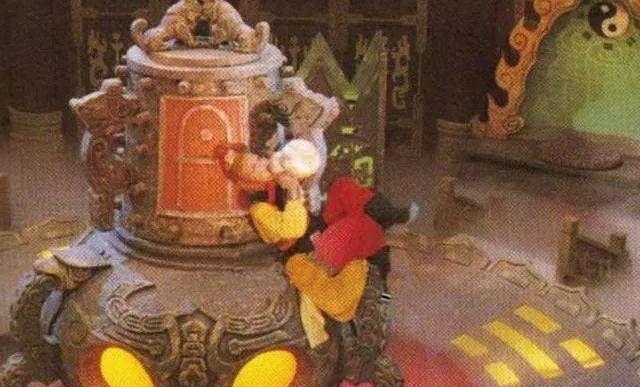The thousand-year-old tomb surprised 200 "elixirs", and the test results made the experts really break out in a cold sweat
In ancient and modern China and abroad, most people hope that they can live a long life, especially the emperors in ancient times, and they desperately hope that they can live forever. Moreover, after the founding of Taoism, more and more people used the slogan of "immortality" to refine various types of pills to please the emperor. Especially in the Eastern Jin Dynasty, the royal family and nobles were most obsessed with it, and these feudal emperors were even more convinced of this, and did not hesitate to use their health to experiment with these medicines that did not even know their names. It is even more called these things "elixirs", hoping to extend life by taking them for a long time.

However, it was precisely because of the consumption of these drugs of unknown origin and unknown composition that most emperors died early. Not only that, even in the folk, there are also some people who take these medicines, of course, the Dan medicine they take cannot be compared with the emperor's, they can be bought at a low price, so there are many people poisoned, and even die. Despite the dangers, it still can't stop people's pursuit of longevity.
Archaeologists are eager to study the ancient elixirs and want to know the secret recipes. After all, the understanding of it is handed down from ancient books and history, and has not really appeared. However, in the 1960s, in a thousand-year-old tomb of the Eastern Jin Dynasty found in Xiangshan, Jiangsu Province, when excavating it, a large number of crystals, gold artifacts and other cultural relics were unearthed, and it was amazing that the staff found the "elixir" inside, which made many scholars come to watch.
After the exploration of this tomb, the staff, as usual, determined who the owner of the burial chamber was based on the epitaph and the excavated artifacts. It turns out that the owner of the tomb is called Wang Danhu, she is a descendant of Wang Xizhi, because her father is a high-ranking official in the imperial court, she is also somewhat famous, and when she reaches the marriageable age, there are people in the family who come to mention relatives almost every day. But judging by her epitaph, she was almost 58 years old when she died. After her death, she was also buried next to her father. If Wang Danhu is married, she should be buried in the tomb of her husband's family after her death, so it can be seen that she is most likely not married.
When the staff opened the coffin, above Wang Danhu's head, a circular box with a diameter of about 10 centimeters was found, and only after opening it was that it was filled with many small red pills. Each one is different in size, some are the size of mung beans, some are like grains of rice, about 0.5 cm in diameter. And the weight of each one is also different, averaging about 0.37 grams per piece. There are almost 200 more. However, many of them have been crushed into powder. And they are placed next to the head of the owner, it can be said that the owner of the tomb is very precious to them.
What makes the staff happiest is that although these small balls have existed for more than 1,000 years, they are still relatively well preserved and look cute. It's just that everyone doesn't know what this thing is, whether it's a pill or a fruit or something like that? For these first-time unearthed small balls, experts are also careful to put them away and send them to the laboratory for ingredient testing.
After testing, it was shown that these small pills were the "elixir" of ancient times, and they ate the miracle medicine that could not die. However, the composition is frightening, because the main one is mercury sulfide, which we all know is very toxic, which contains 13% sulfur and 60% mercury, and the rest of the ingredients are not yet clear. Such ingredients also let the experts take a breath of cool air, long-term taking this drug, not only can not live forever, but also cause poisoning and even death. Experts say the pills must be an hastener of their deaths.
These small pills, because of their great archaeological value, are currently in the Six Dynasties Museum. The ancients paid too much attention to longevity, so that they continued to deify it, and then slowly had the later elixir. At that time, people did not understand the ingredients, and they were overly addicted to it, which was really stupid.